Leaders thank Susan Wengraf: 'You always put the city first'
"I have not had a single day of regret at this job," she said at a recent retirement event to recognize her many years of service in Berkeley.
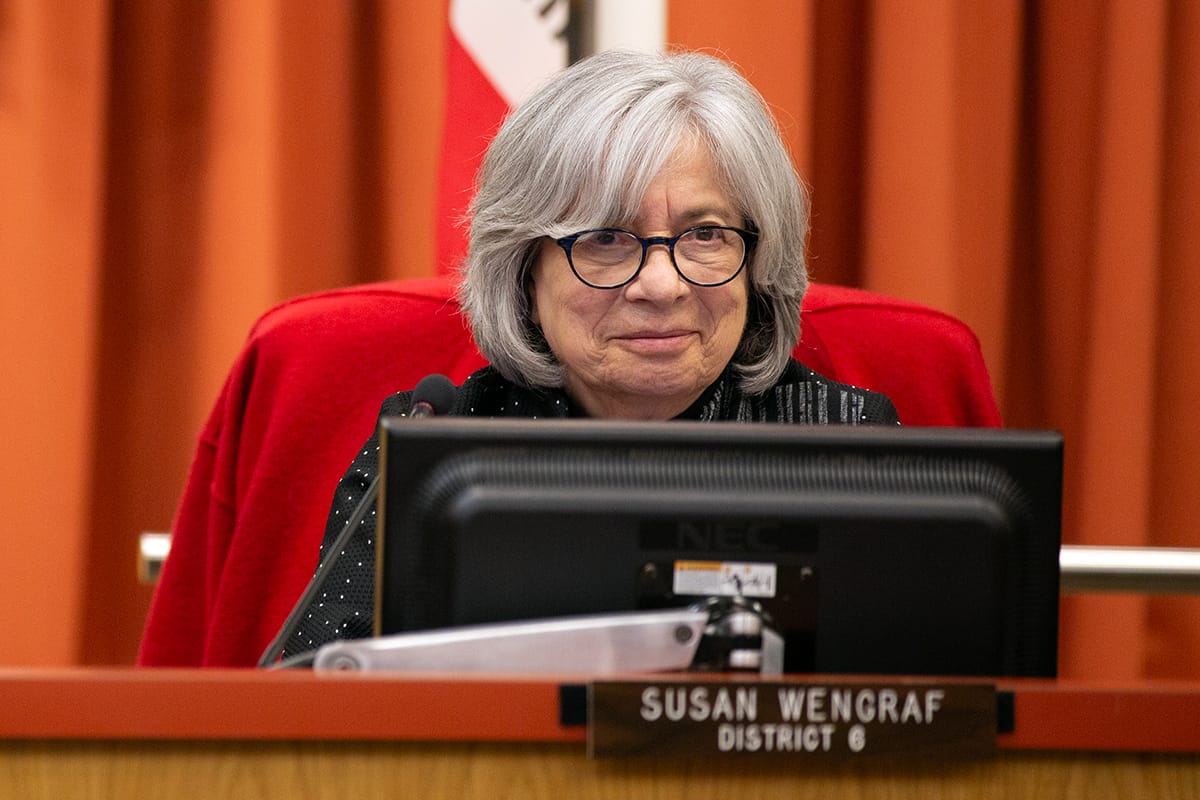
Decades of political heavyweights and Berkeley City Hall insiders crowded into Comal's back patio on a recent evening to pay tribute to Councilwoman Susan Wengraf.
Wengraf, a filmmaker who got her start in politics in the '90s as a legislative aide to Betty Olds, served on the Berkeley City Council for 16 years as the representative for the Berkeley Hills.
"She was ready to retire four years ago and we all pleaded with her to run for one more term," Mayor Jesse Arreguín told the crowd.
Throughout the night, friends and colleagues recognized Wengraf's unique blend of "spiciness" and compassion, saying her no-nonsense approach, mixed with warmth and good humor, allowed her to get critical work done.
Arreguín said Wengraf would "go down as one of the most consequential leaders of Berkeley in the last 50 years," due in part to her emphasis on consensus-building and collaboration.
"She is incredibly wise, incredibly patient, very visionary," Arreguín said, "incredibly hard-working and demonstrates exceptional leadership."
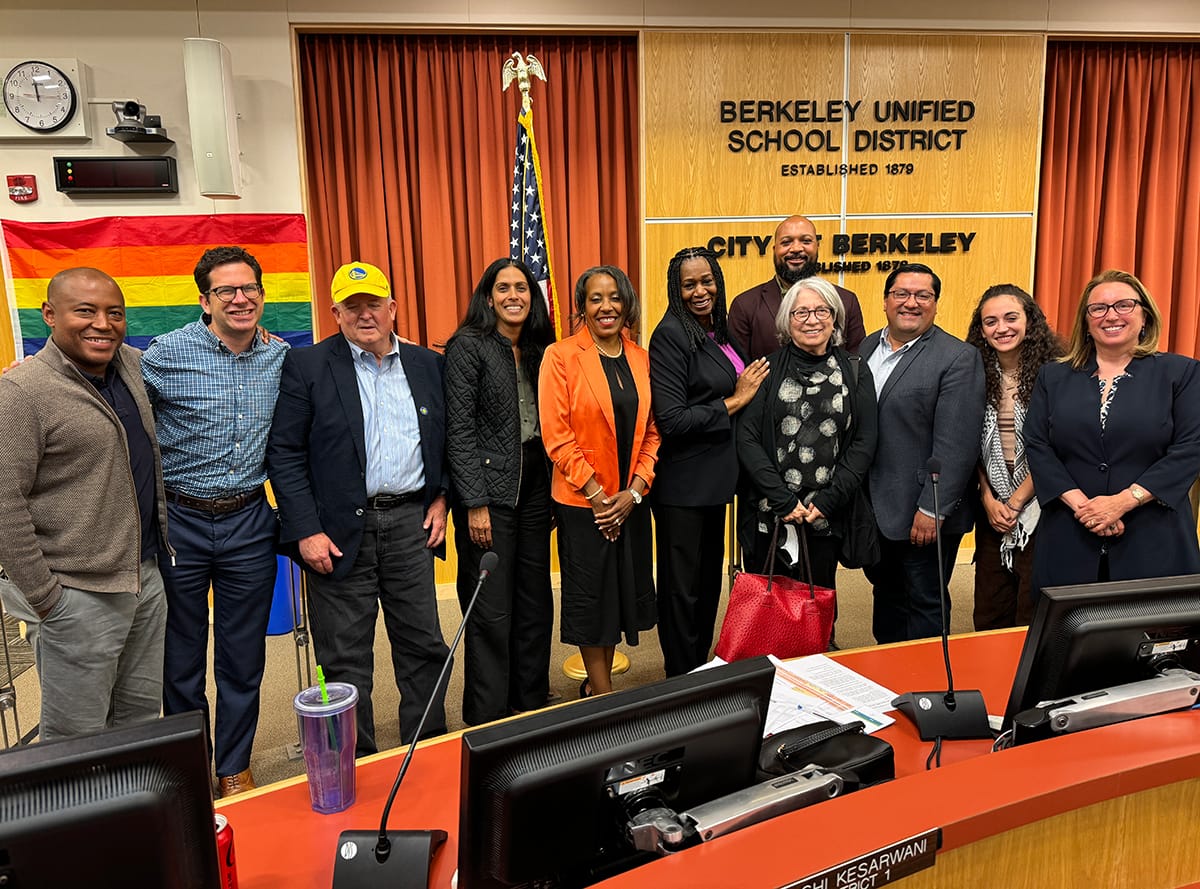
Arreguín, who was elected to the state Senate in November, noted that, "between the two of us, a combined 50 years of institutional memory is going out the door."
Brent Blackaby, Wengraf's chosen successor, handily won the District 6 election in November, beating his opponent with 60% of the vote.
Former state Sen. Loni Hancock said Susan Wengraf had been "the glue" on the Berkeley City Council that helped make the city work.
"This is a woman who reads the packet, knows the details and knows the nuances — what it is and why it matters," said Hancock, who was on the Berkeley City Council herself in the 1970s before becoming Berkeley mayor. "You set a great standard."
Former Berkeley Mayor Tom Bates, Hancock's husband, said Wengraf always "did her homework" and came prepared.
"Susan represented, to me, the absolutely perfect City Council member," he said. "She couldn't have done a better job."
PG&E: Susan Wengraf "makes advocacy an art"
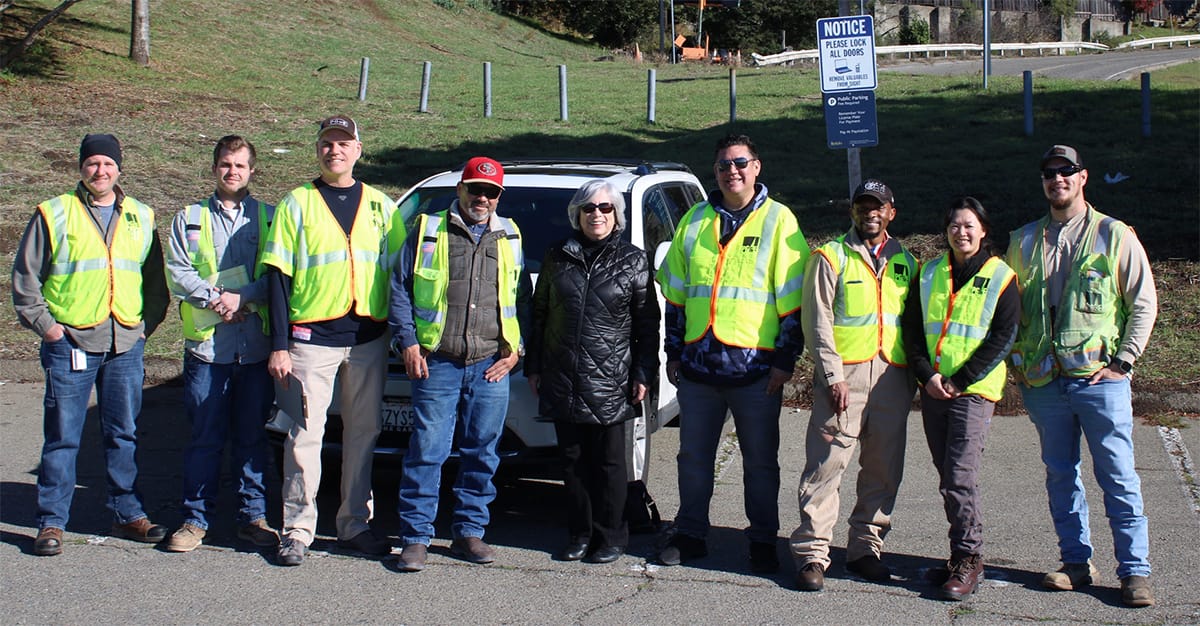
During her years in office, Wengraf prioritized wildfire safety, holding an annual town hall on the subject and pushing PG&E to underground power lines on Grizzly Peak.
"It is by far the absolute largest underground project that I've taken on in my career," said PG&E rep Tamon Norimoto. "And it's a monster. It didn't happen without Councilmember Wengraf's involvement."
The project, which broke ground last year, took nearly 30 years to get going.
Norimoto said Wengraf's approach to building trust had been critical in getting the complex public-private partnership off the ground.
"She comes into every conversation with curiosity. She doesn't assume to know anything. She comes in with questions, with an open mind," he said. "She wants to learn, and by learning we're on the same page."
Norimoto lauded Wengraf's intellect as well as her approach to advocacy, noting that he works with elected officials and municipal staffers in nearly 270 cities and counties throughout the state.
"I've never met anyone who makes advocacy an art like Susan does," he said. "She is amazing. Not only do you want to do things for her, you don't want to disappoint her. She smiles and you want to keep that smile on her face. Even if she's being demanding, I always leave every meeting feeling great."
Fire chief to Wengraf: 'You just took it to a whole other level"
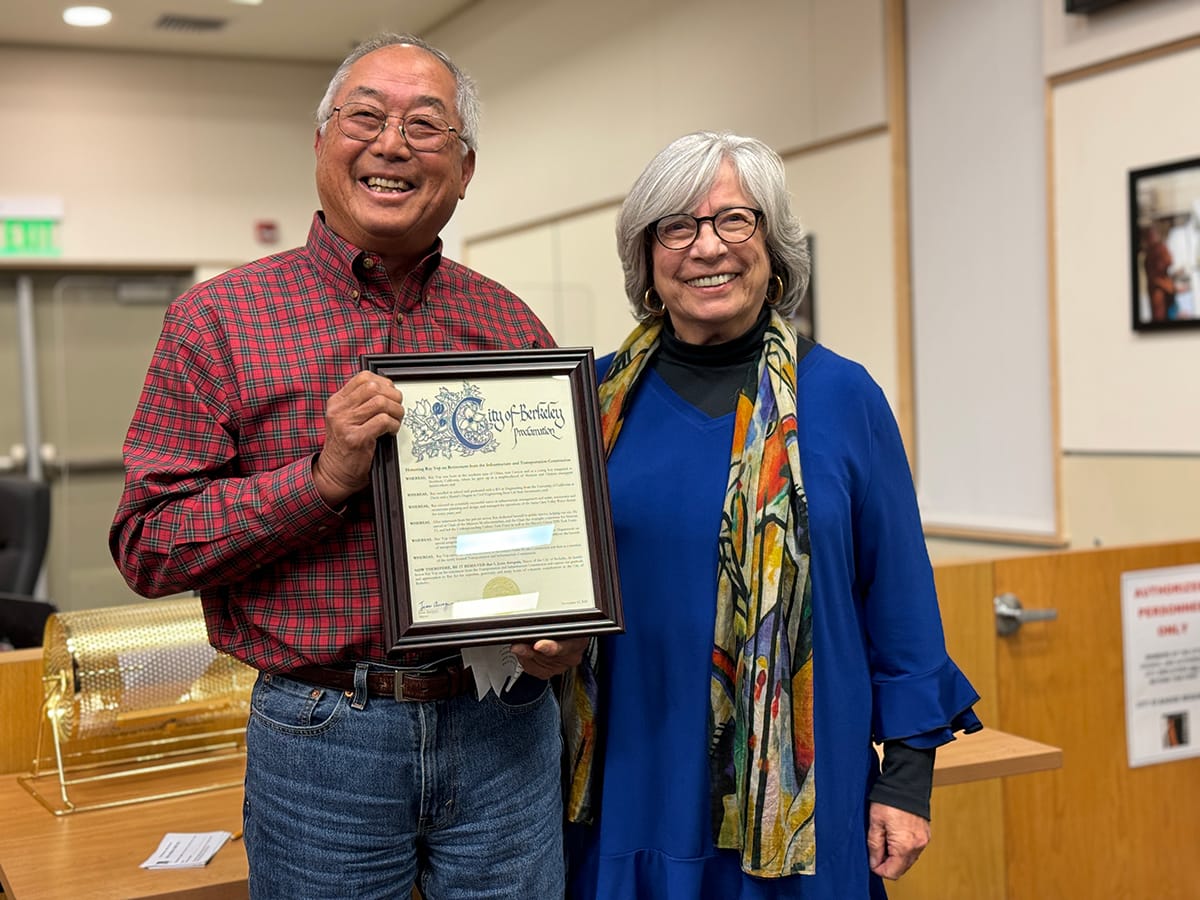
Berkeley Fire Chief Dave Sprague said Wengraf had been like "a Jewish grandma on the City Council" — and "like a fire chief," too.
Sprague said he'd met Wengraf when he was just 23 and she was Betty Olds' legislative aide. As a council member, Olds had been a strong advocate and ally when it came to fire safety.
"We thought, wow, what are we going to do with Betty leaving?" Sprague said. "You just took it to a whole other level."
Sprague said the Berkeley Fire Department had worked on two ballot measures with Wengraf that had "completely reshaped our preparedness and resilience."
"The stuff we're doing today is groundbreaking," Sprague said. "We're leading in the state, in the western United States. And that would not be possible without Susan."
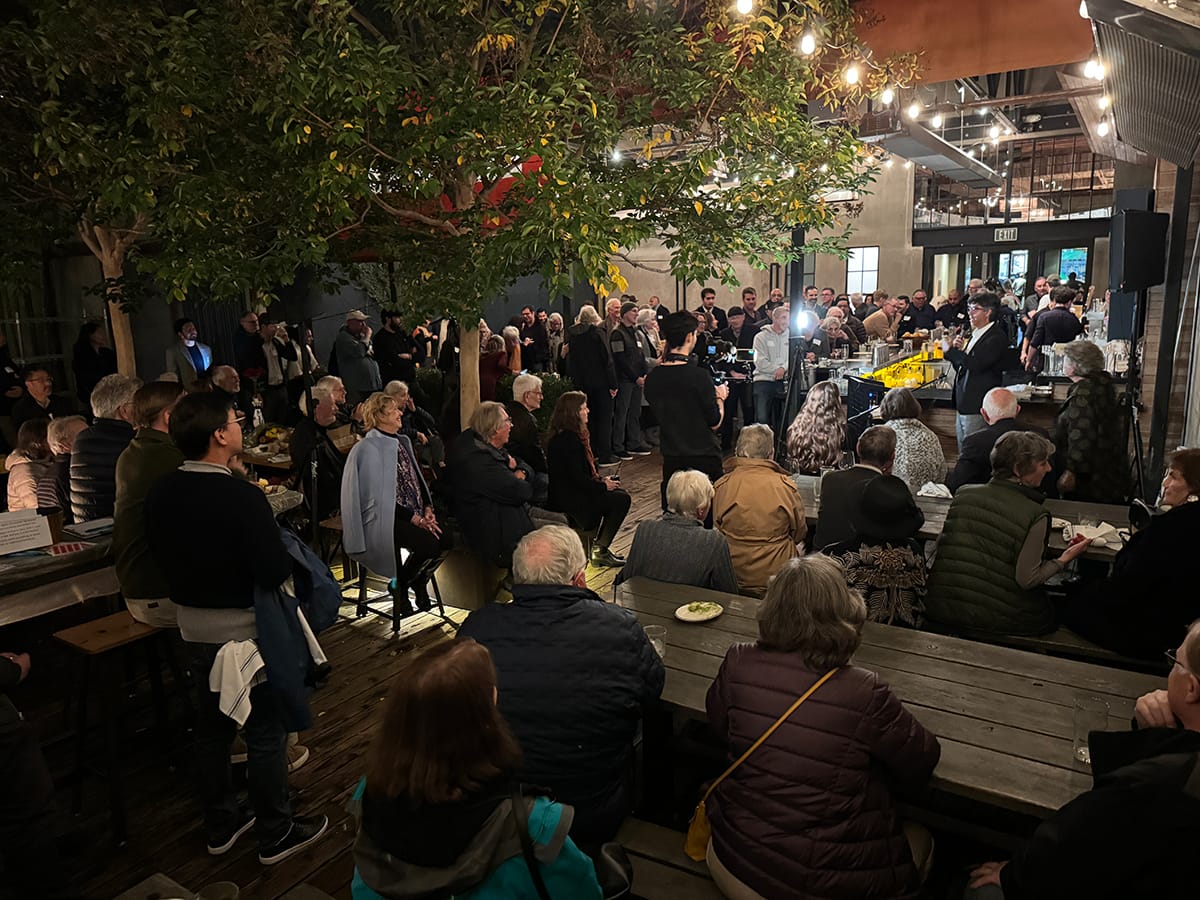
Several former Berkeley city managers and multiple department heads attended the event to honor Wengraf.
"This is like a reunion," said Dee Williams-Ridley, who left the city earlier this year. "I just looked over and saw people that I haven't seen in 10 years. That is absolutely reflective of … Vice Mayor Wengraf."
Williams-Ridley said she had called Wengraf many times, including on nights and weekends, seeking "a shot of wisdom."
"She was always there" with a smile and words of encouragement, Williams-Ridley said. "Thank you so much for your sacrifice."
Berkeley's current city manager, Paul Buddenhagen, said he and Wengraf met for monthly breakfasts even after he left Berkeley in January 2023 to work as Emeryville's city manager.
"She brings such kindness, and such wisdom and thoughtfulness and care — and spiciness. And a little demanding," said Buddenhagen, echoing themes that came up throughout the night, "but just is the person that you really want to be around."
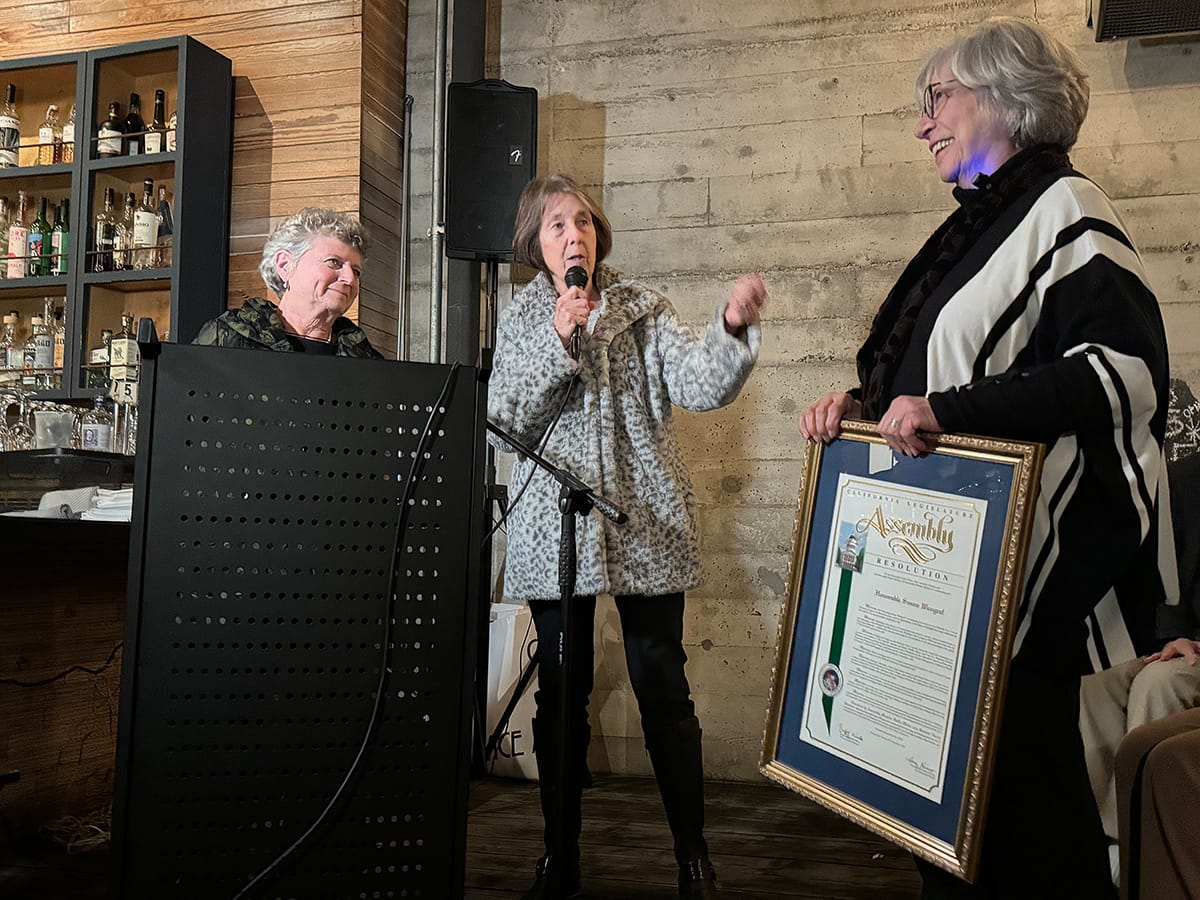
Sen. Nancy Skinner highlighted Wengraf's work around fire prevention and her service on the Berkeley Film Foundation board.
Wengraf moved to Berkeley in 1969 and met her husband, Mark Berger, while directing and producing an award-winning documentary, called "Love it Like a Fool," about musician Malvina Reynolds.
Skinner said Wengraf had done critical work during the pandemic, helping spearhead a meal-delivery program for seniors.
Over the years, Wengraf also worked to address public safety and traffic safety, seeking improvements on Marin Avenue; pushed for better AC Transit bus service in the hills; and led the annual Holocaust Remembrance Day program.
She also raised awareness about rising antisemitism and Islamophobia.
"You never put your ego first. You always put the community and the city first. And that's really what counts," said Skinner. "And that is why you have the turnout tonight and the people here honoring you."
Susan Wengraf: "I have not had a single day of regret"
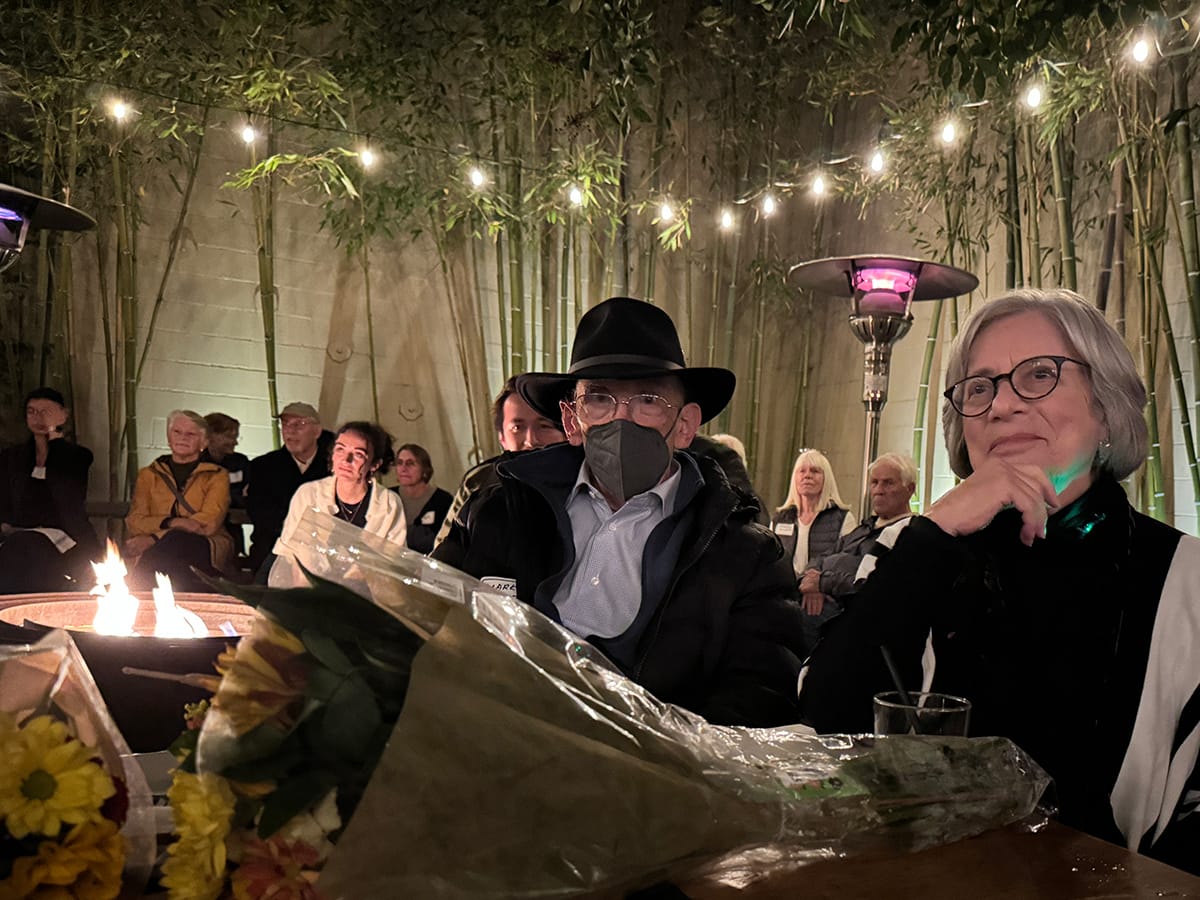
Following the many accolades, Wengraf herself took the mic.
By her count, she said, she had attended more than 2,000 hours of regular City Council meetings — not counting special meetings and closed sessions.
"You have to have a sense of humor," she said. "You have to."
Wengraf credited former Mayor Tom Bates with helping her learn the importance of building consensus across the aisle (before his election, she had supported his opponent).
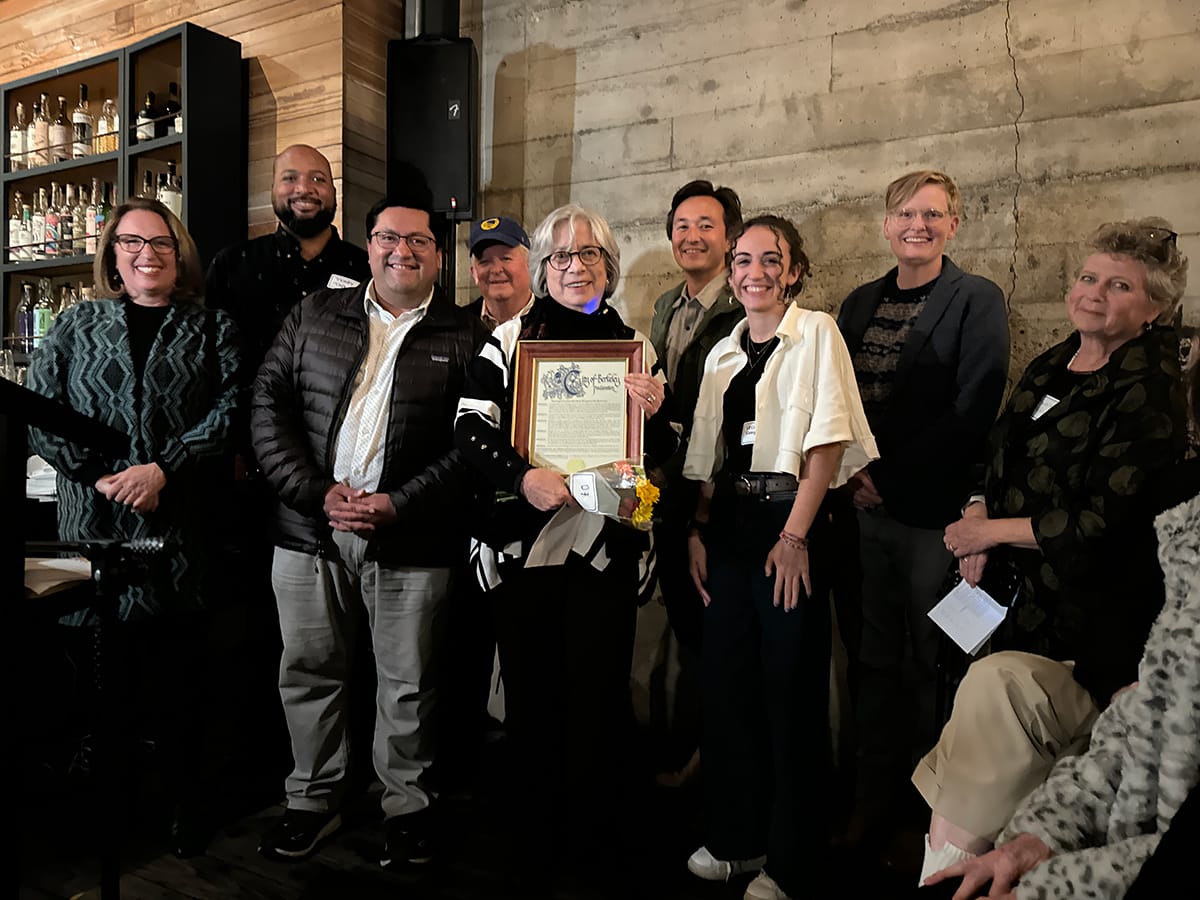
She said she had also focused on collaboration, brevity and the need to "find your center on controversial items."
But her "first principle" in office, she said, had been learning how to overcome the many obstacles of a bureaucracy.
"When Christine Daniel became the city manager, and she came to introduce herself to me, that's the first thing I said to her," Wengraf recalled. "I said, don't ever say no to me. Don't ever say no to me. I want you to work with me on how."
Without that unrelenting focus and determination, Wengraf said, projects like the undergrounding work on Grizzly Peak never would have started.
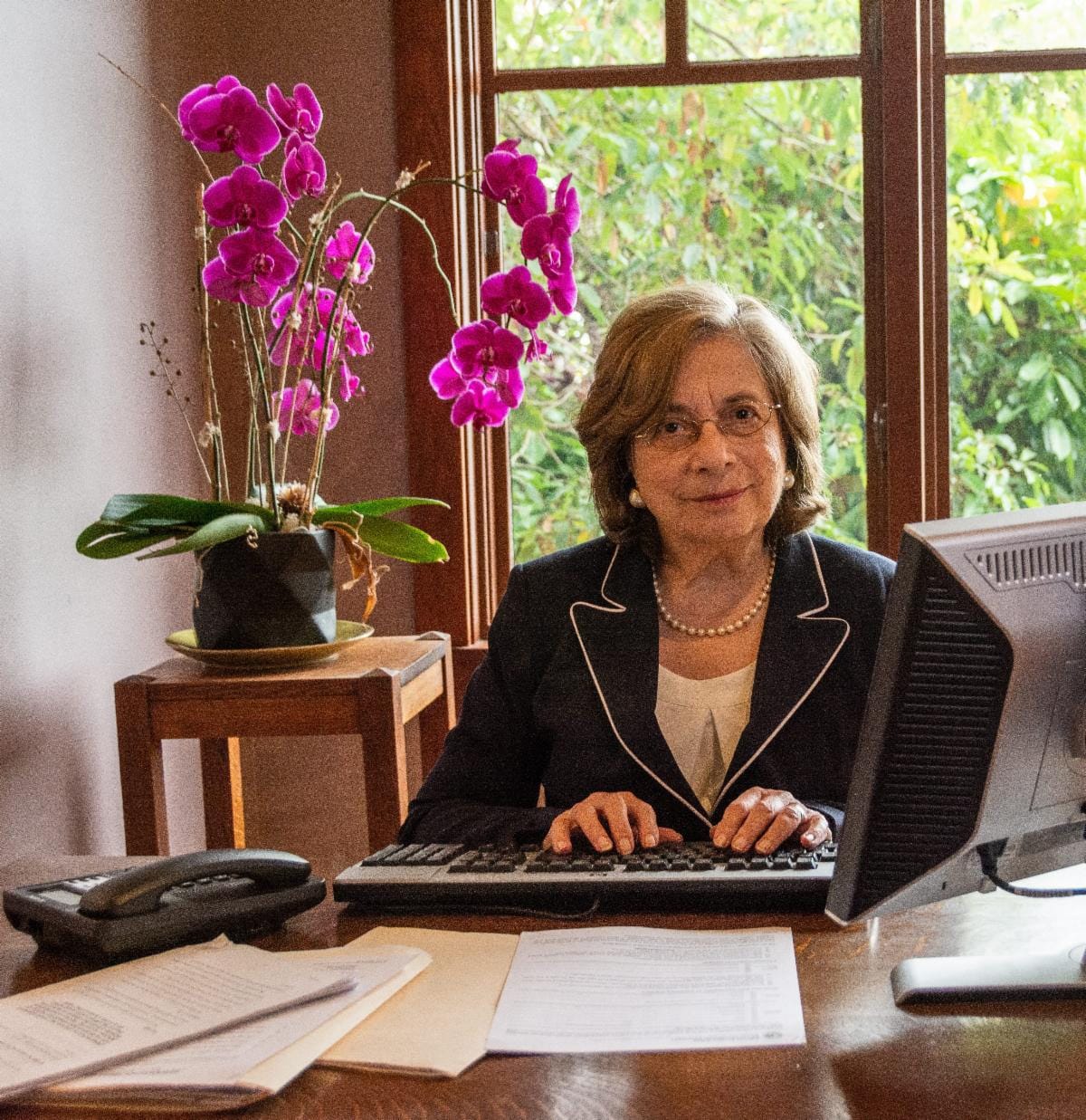
She thanked her longtime legislative aides, Anna Avellar and Laurie McWhorter, and her husband, Mark Berger, for the parts they played in her success.
"When I had to make a decision about whether I was going to run again, he always said, if this is what you want to do, I'll be there for you," she said, of Berger. "And that's the way it's been."
Wengraf also thanked her constituents.
"Some of my constituents are very smart. They might be the smartest people in the world," she said, a nod to the many UC Berkeley affiliates who live in the Berkeley Hills council district. "I've grown so much listening to them."
Her approach to public service had been informed by the Jewish concept of "tikkun olam," repairing the world, Wengraf added.
"Even though I wasn't raised in a religious home, somehow this concept resonated with me," she said. "My parents were both schoolteachers, and they instilled in me this concept of trying to make a better world. And I think that's what has been driving me."
Wengraf continued: "I have not had a single day of regret at this job. As difficult as it is, as frustrating as it was, as crazy as it was, I never said, 'This was a stupid decision.' I always looked forward to going to work."




